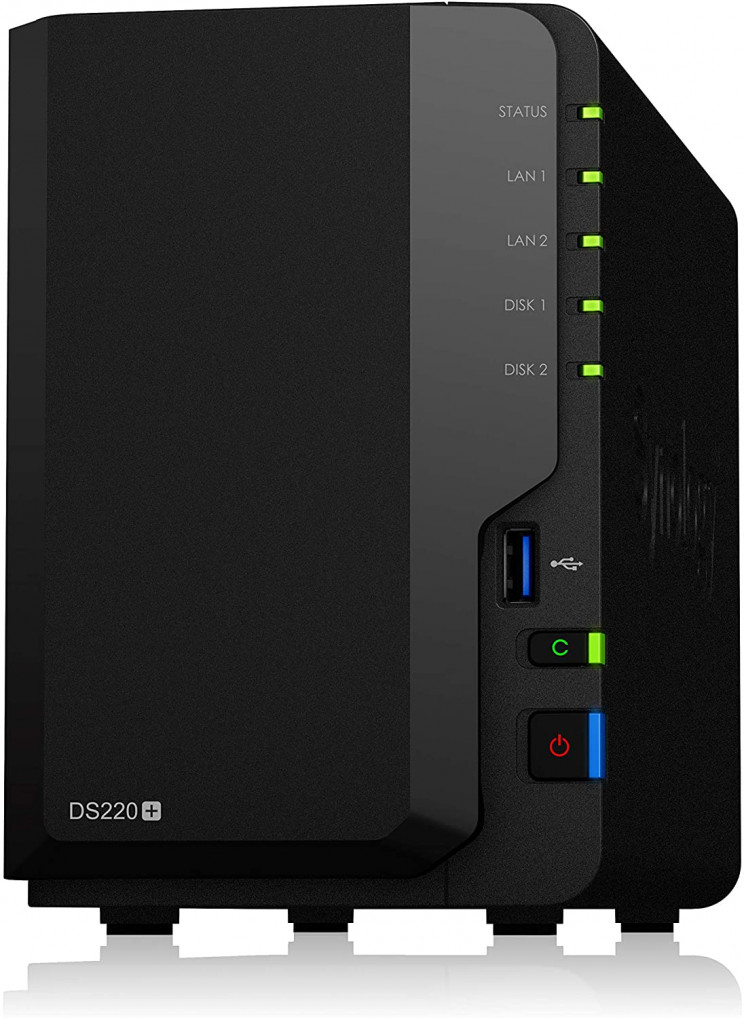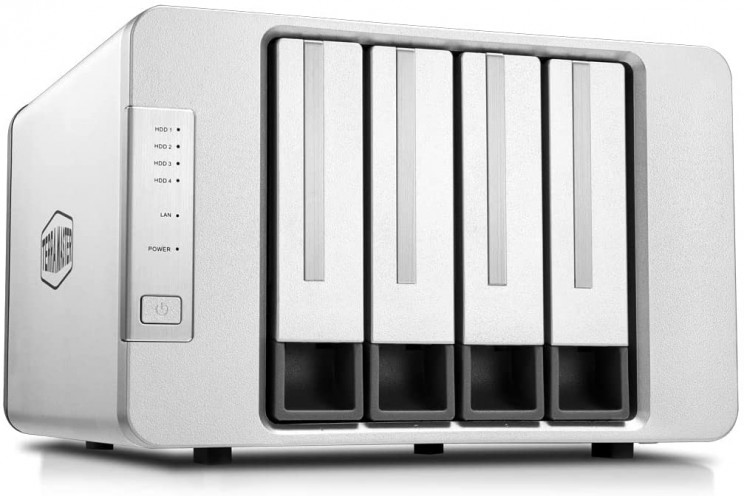7 best network attached storage devices in 2022
Many of us probably don’t give data backup much thought. We have a lot of data on our cellphones, tablets, laptops, and desktop computers. On most days, everything is fine, and having all of our information in one location isn’t a problem. However, the worse can happen from time to time. We might do something unintentionally that blocks our tablet. While outside, our phones can fall out of our pockets and vanish into thin air. Who knows, maybe that old hard drive on which we’d been storing all of our images may finally die and take all of our photos with it.
So, you should definitely back up your gadgets, and a NAS (network-attached storage) disk can be a terrific way to do so. These gadgets connect to your home network and allow you to send and receive data. It’s also simple to sync up with the NAS disk on all of your devices because you may connect several devices to the same network at the same time.
If you want to add network-attached storage to your home network, deciding which NAS is the best might be difficult, considering the unexpectedly large variety of devices available to home users. Although the primary function of a network-attached storage device is to provide a highly reliable backup solution, the finest network-attached drives can also be used as collaborative file servers, web servers, virtual machines, and media centers. They range in size from single-drive machines to rack-mounted enterprise-grade machines with dozens of drives. We narrowed down the best network-attached storage devices to make it easier for you to decide.

The DS220+’s design, tool-less drive installation, rapid setup, and simple settings will definitely impress you. It works with all the major cloud backup providers, and the setup is simple. Synology Photos, a robust photo library with automated albums and facial recognition, will appeal to those who like to preserve and browse family photo albums on their NAS. Synology’s Cloud Sync app also offers extensive compatibility with 22 cloud backup services, ranging from consumer-level goods like Google Drive and Microsoft One Drive to business-oriented choices like Rackspace and OpenStack Swift. Synology’s proprietary Synology Hybrid RAID is one of the most appealing features of many Synology NAS systems (SHR). It’s a unique RAID that’s designed to be easily extendable, allowing customers to use the full capacity of their drives rather than limiting storage to the size of the smallest drive, as with RAID 5.

TerraMaster’s device is powered by a 1.4GHz ARM-based Realtek RTD1296 quad-core processor. It has a maximum single disk capacity of 18TB and can contain up to 72TB of raw internal storage. The TerraMaster software collection is adequate for most needs, especially if your primary use case is as a Plex server. Apart from Plex, users can sync with Dropbox, Google Drive, and other services individually, but there is no unified backup program that covers all of them at once. Although this NAS supports USB device backup, it lacks a one-touch backup button, so you’ll have to perform it through TOS. When building a personal cloud drive, TerraMaster’s TNAS.online service eliminates the bother of configuring DDNS, network settings, and port forwarding rules. Access rights can be customized for your family, relatives, coworkers, or friends, allowing you to share your joy at no additional expense.

QNAP‘s focus is more on the professional side of things, which limits it for many at-home use cases, but when it comes to backup storage, having a wide range of options is critical. The QNAP TS-253D supports over 30 different cloud backup services, spanning from popular consumer options like Google Home and Dropbox to business- or programming-oriented services like Rackspace or OpenStack Swift. Backups to additional NAS systems, both local and distant, are equally simple to set up, and everything is managed using a single program called Hybrid Backup Sync. When it comes to backups, security should be a top priority for everyone. Not only does QNAP make things like its built-in firewall easy to configure, but it also has a security guidance tool called Security Counselor that may assist you to safeguard your NAS.

The ioSafe 218 NAS is a 2-bay storage device that is genuinely bomb-proof. The heavy-duty metal container weighs 31 pounds, and it’s lined with insulating, waterproof IP68 materials. It claims to keep hard drives safe in temperatures as high as 1,550 °F (843 °C) for up to 30 minutes, or in water as deep as 10 feet (3 m) for up to 3 days. The drives are kept behind layers of panels held on by magnets or screws, and the entire device can be bolted down to the floor with a floor mount kit, which adds extra protection by adding a locking front panel. The best part is that if you buy the NAS with ioSafe-populated drives, it comes with a 2-year data recovery service that can be upgraded to 5 years once you register it. This service means that ioSafe will try to restore your data for free in the event of a disk failure, human mistake, or accidental loss of files.

A 1.4GHz quad-core CPU, 1 GB of DDR4 RAM, and 8 GB of flash memory power the AS1102T. All of these components are kept cold by a 2.7 inches (70 mm) fan. It can transcode 4K video and accepts 2.5- and 3.5-inch (0.6 and 0.8 m) disks for a total raw capacity of 36 TB. The total raw capacity can be increased to 180 TB by using an expansion-bay module. Along with the EXT4 file system, this NAS supports RAID 0, RAID 1, Single, and JBOD volume types. The AS1102T is managed with Asustor’s ADM 4.0 operating system, which has a few new functions not present in prior versions. Management operations are made a little easier than on earlier Asustor devices because of an enhanced search engine, upgraded OpenSSL connectivity, and user-friendly web server capabilities.

The Synology DiskStation DS220j is a great option for home users who want to build a personal cloud where they can back up their data and share photographs, music, office documents, and more. It’s simple to set up, performs admirably in tests, and comes with a user-friendly operating system that makes configuring drives, creating shared folders, and turning the NAS into a multimedia server a breeze. You’ll need to provide your own storage drives and install them with tools, but nearly all the NAS devices we examine come without them. Synology’s DiskStation Manager (DSM) operating system, a web-based NAS OS that makes setup and managing the device simple, is used on the DS220j.

The new Lockerstor 2 AS6602T, made for small businesses, has a few enhancements, including a more powerful CPU and two M.2 NVMe solid-state drive (SSD) slots for faster caching. In terms of NAS internal processing silicon, the AS6602T uses the most up-to-date internal technology. It has a quad-core Intel Celeron J4125 processor running at 2GHz, 4 GB of DDR4 RAM that can be expanded to 8 GB, and 8 GB of flash memory. NVMe SSDs can be installed in two M.2 SSD slots for fast data caching. This NAS can hold up to 36 TB of data on two 2.5-inch or 3.5-inch drives, with two cutting-edge 18 TB 3.5-inch drives. If you use an expansion device, you can add more drives for a total storage capacity of up to 252 TB. RAID 0, RAID 1, Single Disc, and JBOD are all supported, as are Btrfs, NTFS, HFS+, and ext4 file systems.
Interesting Engineering is a participant of the Amazon Services LLC Associates Program and various other affiliate programs, and as such there might be affiliate links to the products in this article. By clicking the links and shopping at partner sites, you do not only get the materials you need but also are supporting our website.
